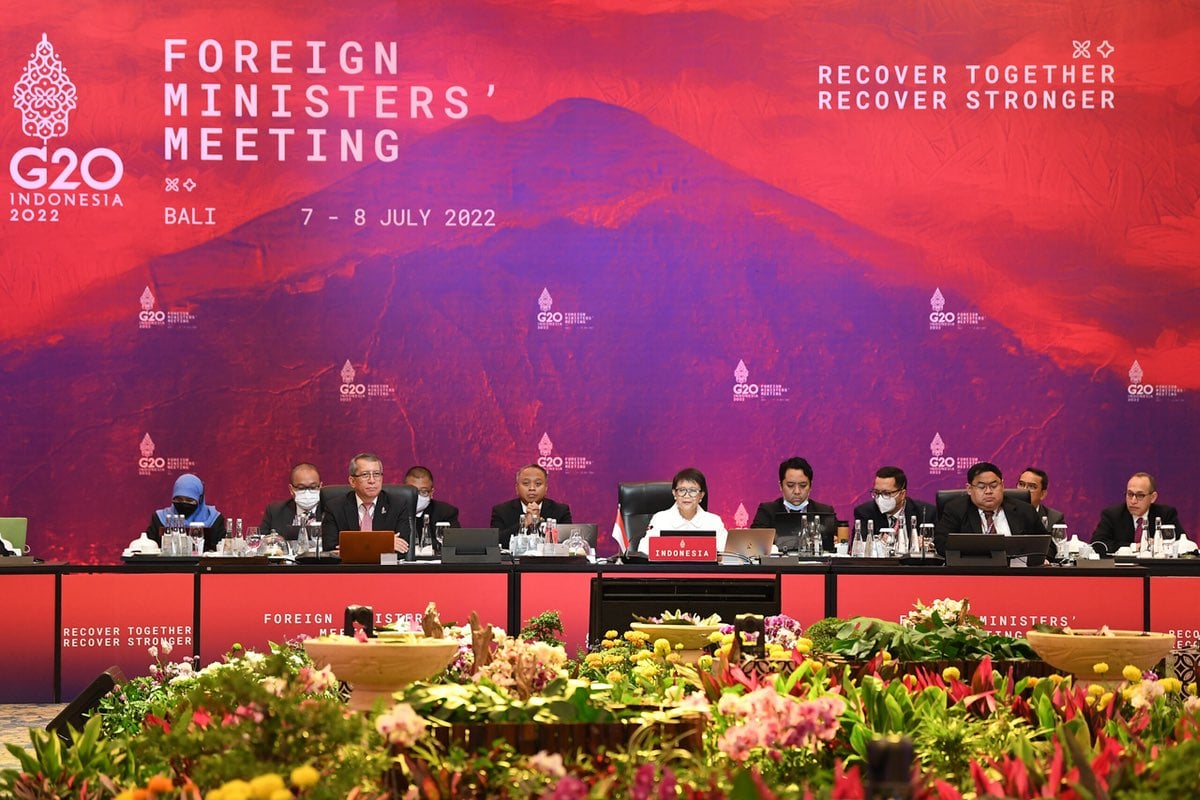July 18, 2022

Photo by Antara Foto/Pool/Sigid Kurniawan/rwa.
The G20 Foreign Ministers’ meeting held on July 7-8 in Bali saw Chinese State Councillor and Foreign Minister, Wang Yi, highlight support for CGIAR as part of a proposed cooperation initiative to boost global food security.
Foreign Minister Wang Yi highlighted the need to help CGIAR increase innovation and build cooperation on agricultural science and technology among countries. Addressing the meeting, Wang said the food and energy sectors are crucial for the healthy performance of the world economy and the effective implementation of the UN 2030 Agenda for Sustainable Development.
His statement was made shortly before the signing of Letters of Intent for Cooperation between the Chinese Academy of Agricultural Sciences (CAAS) and two CGIAR Research Centers, the International Maize and Wheat Improvement Center (CIMMYT) and the International Rice Research Institute (IRRI).
CIMMYT, IRRI and CAAS intend to establish a joint Center in Hainan to address global food security through advances in wheat and rice breeding. The collaboration aims to enhance the environmental sustainability of rice and wheat based agri-food systems, promote biodiversity conservation, combat climate change, and improve the health and welfare of growers and consumers.
Jean Balié, Regional Director, South East Asia and Pacific, CGIAR, and Director General of IRRI said: “Our new agreement solidifies and updates a longstanding and fruitful partnership. Today we face a different and growing set of challenges to our food, land and water systems, and we welcome the opportunity to strengthen knowledge and information exchange from across CGIAR that will contribute to a transformation of global food, land and water systems.”
CIMMYT Director General, Bram Govaerts added: “This state-of-the-art breeding center will help us develop and deploy the new nutritious, high-yielding and resilient varieties that Asian farmers need to feed and nurture the most populous region of the world sustainably or within planetary boundaries.”
In three decades of collaboration, CAAS and CGIAR have cooperated on germplasm exchange, breeding new varieties of crops, and providing opportunities for staff collaboration, development and training.
In wheat research, the partnership has added as much as 10.7 million tons of grain – worth $3.4 billion – to China’s national wheat output. Additionally, eight CIMMYT scientists have won the Chinese Friendship Award – the highest award for foreign experts who have made outstanding contributions to China’s economic and social progress.
A reaffirmation of Chinese support for CGIAR comes on a tide of growing recognition that more investment is needed to tackle hunger.
Earlier in the year the G7 Foreign Ministers’ Communiqué underlined the urgent need to address risk in global food systems citing this as a top foreign policy objective. At the same time, the G7 Agricultural Ministers Communiqué cautioned that slowing down work to address longer term goals of food systems transformation, in order to address short term food crises, will have negative consequences in the medium and long term. In this context CGIAR’s System Board Chair, Marco Ferroni, recently highlighted the need for world leaders to look at the big picture to solve the food crisis.